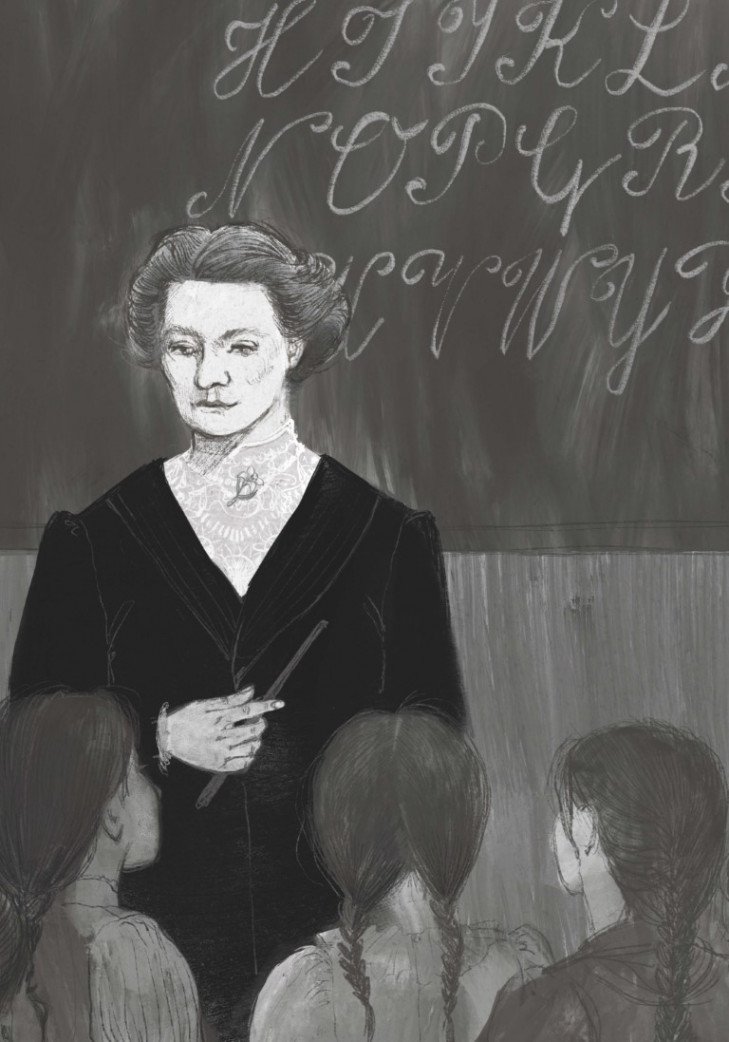Františka Plamínková (5 February 1875 - 30 June 1942)
Born February 5, 1875, Frantiska Plaminkova was an ardent and enterprising feminist who founded the National Council of Women and spent her life working for women’s rights. She first became involved in the women's movement while a teacher in training. In this time under the celibate and other laws, married women were legally considered their husbands property and could be imprisoned, beaten, and disallowed to work outside of the home by them. Plaminkova wanted to abolish these laws and gain equality for women.
To this effect Plaminkova founded the Czech Women’s Club in 1903 to bring together like minded feminists and two years later the Committee for Women’s Voting Rights which she and friend and fellow teacher Marie Tumova used to make universal women’s suffrage a big public issue.
A large-scale Czech campaign gained universal suffrage in the Habsburg lands in 1907 but only for men. While Frantiska Plaminkova was at first extremely disappointed, she soon realized that nothing barred women from voting or running in Bohemian elections and the next year her committee both ran Tumova as a candidate and convinced several other parties to run female candidates. Unfortunately, when Bozena Vikova-Kuneticka was elected to the Czech diet in 1912, the Bohemian governor declared the result invalid. Despite the setback, running and supporting a female candidate for public office became seen as a way to oppose the Habsburg authorities and fight for Czech independence and Plaminkova became famous nationally and internationally.
On October 28th 1918, Czechoslovakia declared independence from the Austro-Hungarian Empire and in 1920 adopted the Czechoslovak Constitution which gained women the right to vote in both local councils and both houses of Parliament as well as the right to attend university and technical schools. Despite this, discrimination against women in the workforce continued as a civil code from the Habsburg era that stated husbands still had control over their wives and could allow or forbid them to work outside of the home was still in effect.
Plaminkova lobbied alongside Milada Horakova, one of the first Czech women to earn a law doctorate, to protect workforce equality through Article 106 of the new constitution. She served in Prague City Hall until 1925 when she was elected to the Senate. In this time, she founded the National Council of Women, an umbrella group of around fifty organizations which lobbied to enforce equal rights by changing employment and family law.
Czech Centres
Even though she was a Senate chairperson, Frantiska Plaminkova was unable to make changes to the family code. Her efforts to achieve real equality for women were were halted by the Nazi occupation of Czechoslovakia. Plaminkova addressed an American audience in 1937 warning of the threat Hitler posed to both Czech democracy and women’s rights. In 1938 she wrote an open letter to Hitler denouncing him and calling out his lies.
A year later, in September 1939, on the day World War II started Plaminkova was arrested by Gestapo and spent over a month being tortured and interrogated. Even after her eventually being released she was constantly watched. Despite this, Palminkova continued to fight for equal rights. she assigned her friend Milada Horakova to create an underground resistance group dedicated to carrying on the fight.
In June of 1942 she was executed in a storm of retaliation for the assassination of Reinhard Heydrich, the Reichsprotektor of the Protectorate of Bohemia and Moravia. She passed her work to Milada Horakova who, after the war, took her seat in the Senate.
Wikipedia
Written by Anna Wallace
Kenety, Brian. “Frantiska Plaminkova: the feminist suffragette who ensured Czechoslovakia’s Constitution of 1920 lived up to the principal of equality.” Radio Prague International. February 29, 2020. https://english.radio.cz/frantiska-plaminkova-feminist-suffragette-who-ensured-czechoslovakias-8106811
Paludi, Michele. Women, Work, and Family: How Companies Thrive with a 21st-Century Multicultural Workforce. Santa Barbara, Praeger, 2014.



